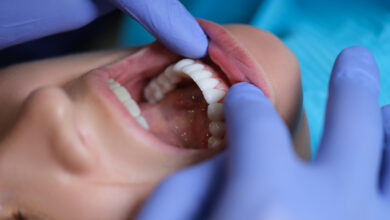What Are the 8 Keys to Recovery From an Eating Disorder?

It’s not unusual for someone to suffer from an eating disorder at some point in their life.
Millions of men and women currently suffer from anorexia or bulimia. Anorexia nervosa, bulimia nervosa, and binge eating disorder aren’t about food but a disorder about control, perfection, and having an all-consuming thought process.
Some spend an entire lifetime trying to deal with these. Some have to step away, take a deep breath, and deal with an eating disorder.
Here are the 8 keys to recovery from an eating disorder.
1. Motivation, Patience, and Hope
It allows one to believe in the possibility of a better future and gives them the strength to keep fighting. With motivation, patience, and hope, recovery from an eating disorder is not only possible but achievable.
2. Your Healthy Self Will Heal Your Eating Disorder Self
Your healthy self is the one who knows how to nourish your body and treat it with kindness and compassion. By reconnecting with this part of yourself, you can learn to heal your eating disorder self.
3. It’s Not About the Food
By focusing solely on the food, we may miss the opportunity to uncover and heal the root causes of the disorder. It’s important to recognize that an eating disorder is a complex mental health issue and requires a holistic approach to recovery that addresses the mind, body, and soul.
4. Feel Your Feelings, Challenge Your Thoughts
By allowing ourselves to fully experience and process our emotions, we can begin to understand the underlying issues triggering our disordered eating behaviors.
5. It Is About the Food
Learning a healthy diet, rather than using it as a means of control or punishment, is essential for overcoming an eating disorder. Nutrition education and meal planning play a vital role in the recovery process, as it helps individuals develop a healthier mindset towards food and their bodies.
6. Changing Your Behaviors
By changing your behaviors, you are taking control of your life and committing to your well-being. This can include learning to listen to your body’s needs, establishing a healthy relationship with food, and developing coping mechanisms for dealing with triggers.
7. Reach Out to People Rather Than Your Eating Disorder
By voicing your struggles and seeking help from others, you can build a strong support system and develop healthier coping mechanisms. Remember, you are not alone in your journey toward recovery, and reaching out to people can make all the difference.
If you’re interested in learning more about eating disorder treatment, click for more information.
8. Finding Meaning and Purpose
This can be achieved through setting meaningful goals, engaging in activities that bring joy and fulfillment, and building strong and supportive relationships. When individuals have a sense of purpose, they are more resilient against the underlying triggers of their eating disorder. It provides a sense of direction and fulfillment, ultimately contributing to their overall well-being and recovery.
Learning the 8 Keys to Recovery From an Eating Disorder
In conclusion, the 8 keys to recovery from an eating disorder offer a comprehensive approach to overcoming this complex and often debilitating illness.
By focusing on these key areas, individuals can achieve sustainable and long-lasting recovery. If you or someone you know is struggling with an eating disorder, take the first step toward recovery by seeking professional help.
Remember, recovery is possible. Take action today.
For more informative articles, visit our main blog section.
You Might Also Like:




